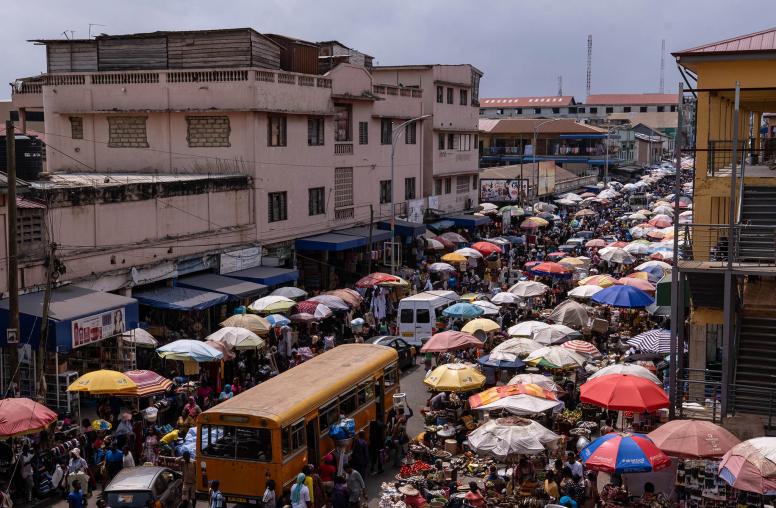 Ghana
Ghana
Featured Research & Analysis

What Ghana’s Presidential Election Means for the Country and West Africa
With current President Nana Akufo-Addo unable to run again under the constitution’s two-term limit, Ghana’s 2024 presidential election marked the end of an era — and a significant shift in the national political landscape.

Sahel Coup Regime’s Split from ECOWAS Risks Instability in Coastal West Africa
As policymakers monitor the spread of terrorist violence and warfare from the Sahel region, one broad threat to international and U.S. interests is West Africa’s 3.4 million people uprooted by the Sahel’s chaos. So far, over 110,000 have fled to four West African coastal states, a migration that signals new dangers to the region’s democracies, and to the Economic Community of West African States (ECOWAS), the multinational body that for decades has been central to promoting region-wide stability.

For Peace in Africa, Boost Regional Blocs — Like West Africa’s ECOWAS
As the United States and international partners work to stabilize Africa’s Sahel region — and to prevent its warfare, violent extremism and armed coups from metastasizing into Africa’s densely populous and strategic Atlantic coast — the West African multinational bloc, ECOWAS, has proven its value in resolving crises and promoting stability. Yet, as global security threats have evolved, ECOWAS, like other multinational bodies, needs updated capacities to meet new challenges. International democracies’ most effective initiative to support West Africa’s stability would be to partner with West Africans to strengthen their vital regional community. A similar strategy is valid across Africa.
